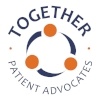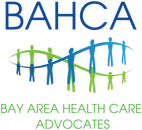
Do you think you're protected from COVID because you're young and healthy? Do you think it is not any worse than the flu? If so, talk to someone with Long COVID.
What is Long COVID?
In February the scientific community named the persistent symptoms experienced by COVID long-haulers: Post Acute Sequelae of SARS-CoV-2 (PASC). The commonly used term is “Long COVID.”
The Med Journal describes Long COVID this way:
- Persistent symptoms for weeks or months after COVID infection or
- New or recurrent symptoms at a later time
- Symptoms can worsen with physical or mental activity
- Can happen to anyone who has had COVID-19, even if initial illness was mild or asymptomatic
What are the Symptoms?
Multiple studies highlight the breadth and randomness of symptoms. A study led by the University College London study of 3,762 Long COVID survivors in 56 countries included these key findings:
- Survivors identified 66 symptoms at least 28 days after first becoming ill
- 91% of participants reported having an average of nearly 56 symptoms
- An average of 9 organ systems were involved for more than 8 months including:
- Cardiovascular
- Gastrointestinal
- Reproductive
- Immunologic and autoimmune
- Musculoskeletal
- Head, ear, eye, nose and throat
Fatigue, loss of smell, shortness of breath or difficulty breathing, and headaches are often noted as the most common symptoms. However, survivors often experience these symptoms as well:
- Dizziness on standing
- Fast-beating or pounding heart
- Chest pain
- Cough
- Joint or muscle pain
- Depression or anxiety
- Fever
Unlike the flu, when symptoms eventually lessen and then disappear, Long COVID symptoms have a persistent habit of random recurrence. The University College London study stated, “Overall, 85.9% of participants had relapses, mainly triggered by exercise, physical or mental activity, and stress, and 86.7% reported fatigue, compared with 44.7% of recovered respondents”
Who Gets Long COVID?
Studies report various percentages of COVID survivors developing Long COVID. However several studies, such as this one, estimates up to 30% will develop Long COVID.
A study published in the Annals of Internal Medicine found that:
- The average age of a Long COVID survivor is 42.1 years
- 7% had no underlying health condition (described as “young and healthy”)
In addition, Long COVID is not limited to those who initially had severe cases of COVID. Several studies, including this one published in Med, found many individuals who initially reported having mild symptoms developed Long COVID.
The study goes on to state the frightening reality of Long COVID: “We still do not know who is more likely to get Long COVID and what the risk factors for developing it are. We also do not know who is more likely to recover from it, and how it can be treated.”
Survivors’ Experiences
Even though multi-disciplinary clinics are being established to treat survivors, as this New England Journal of Medicine (NEJM) article explains, many survivors feel they are not heard, listened to or believed. People of color are especially susceptible to being dismissed or misdiagnosed.
The Centers for Disease Control (CDC) statistics indicate that Blacks, Latinos, and American Indians are at greater risk of developing COVID. Therefore, it follows they are also more likely to get Long COVID. The barriers to getting tested or treated for COVID early in the pandemic, including lack of access to quality care and mistrust of the medical community, are now also barriers to Long COVID treatment.
Chimére Smith, a former teacher who lost her career, home, and savings to Long COVID, said she was transformed into “a Black woman in America who doesn’t know enough words to convince doctors and medical staff to take my bout with long COVID seriously.”
Unfortunately, her experience is not unique. One doctor from the University of Birmingham described survivors as feeling “…abandoned and dismissed by healthcare providers and receiv[ing] limited or conflicting advice,”
The NEJM article takes the issue further by saying, “…the ultimate success of the research-and-development and clinical management agendas in ameliorating the impending catastrophe is critically dependent on health care providers’ believing and providing supportive care to their patients.”
What’s Next
As mentioned above, there remains a lot about Long COVID that is not yet known. To address that problem, in February the US government launched the $1.15 billion PASC Initiative to study the prevention and treatment of Long COVID.
Hospitals across the country are opening Long COVID clinics, which are often staffed with multi-disciplinary teams needed to treat Long COVID’s impact on numerous organs and organ systems. Survivor Corps has a map of Post COVID Care Centers across the country.
In addition, Long COVID is now considered a disability under the Americans with Disability Act. This means survivors are entitled to all of the protections from discrimination as are others with disabilities, including possible workplace accommodations or “reasonable modifications.” This is critically important because according to one study, 45.2% of the survey’s respondents had to reduce their work hours and 22.3% were unable to return to work at all.
A list of additional federal resources can be found here.
On the downside, there have been over 39,000,000 cases of COVID in the U.S. If even 10% of those cases result in Long COVID, which is a conservative estimate, that means more than 3,700,000 are living with Long COVID. Given the extreme fatigue that renders many survivors unable to work, hundreds of thousands of people will be on unemployment or disability for an unknown period of time. Treatment of the damage done to numerous organs and organ systems impacted by COVID will further stress a medical system already nearly stretched to capacity by the pandemic.
Support for Survivors, Friends & Family
Many survivors who have felt dismissed and not listened to, have found solace in support groups. Some of the Post COVID Care Centers mentioned above offer support groups.
Social media support groups for Long Haul COVID are plentiful. Participants should be careful when receiving peer-to-peer advice. Michael Saag, a University of Alabama epidemiologist, says such groups are “...a place to share experiences and a place for people to support one another. I think caution is warranted, however, in relying on medical advice or claims of research success from a Facebook site.” Instead, such information could be used to start conversations with your physician or care center group. Moderated support groups such as these (Long Haul COVID Fighters Round 1, Long Haul COVID Fighters Round 2) can help with this problem.
As with many other illness, maintaining a healthy diet, limiting alcohol, and not smoking will help energy levels, sleep patterns, heart rate and blood pressure.
Finally, navigating our healthcare system can be a daunting experience in the best of times. Extreme fatigue can make the process even more challenging. A healthcare advocate can help guide COVID survivors or their loved ones through the system and help ensure survivors’ voice are heard and symptoms are taken seriously.
As with the other complications of COVID-19, the best way to deal with Long COVID is to avoid it in the first place. Most importantly, get vaccinated. Vaccination reduces Long COVID by half as shown in this recently released study. In addition to reducing risk of death, vaccination help keeps you from getting seriously ill if you do get COVID and reduces the risk of your spreading the virus that causes COVID to others -- like children under 12 who are too young to be vaccinated. Wear a good mask such as a kn95 to reduce the risk of contracting the more contagious Delta variant, avoid high risk situations such as indoor or crowded events, wash your hands frequently, and continue social distancing.



.gif?width=200&name=NAHAC-Member-Badge200x112+(1).gif)


